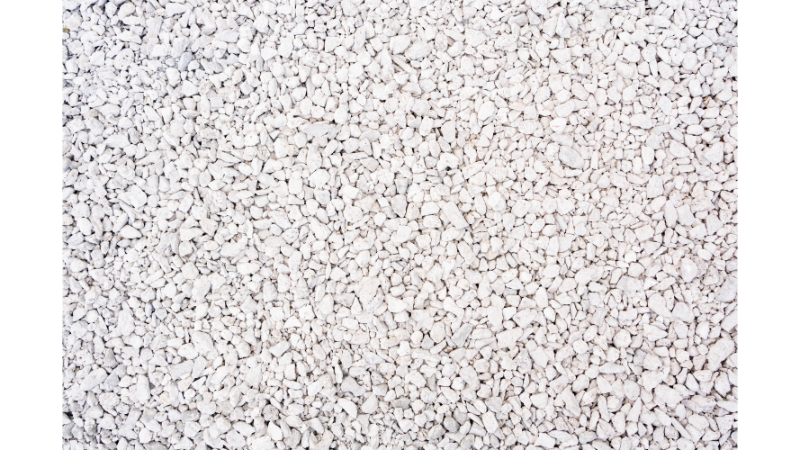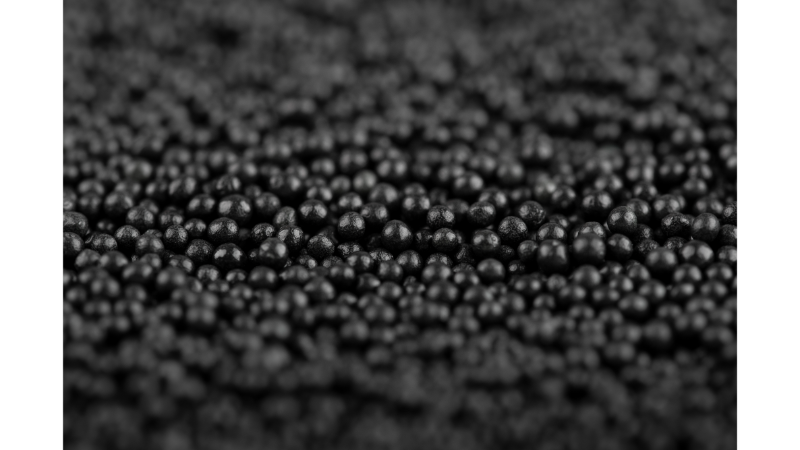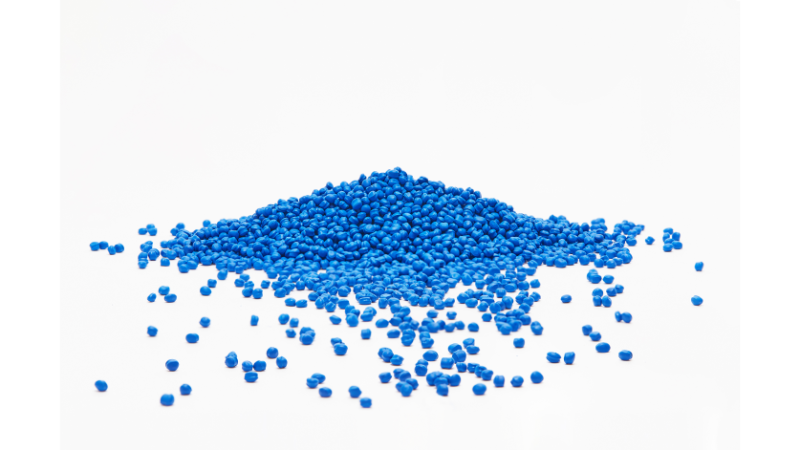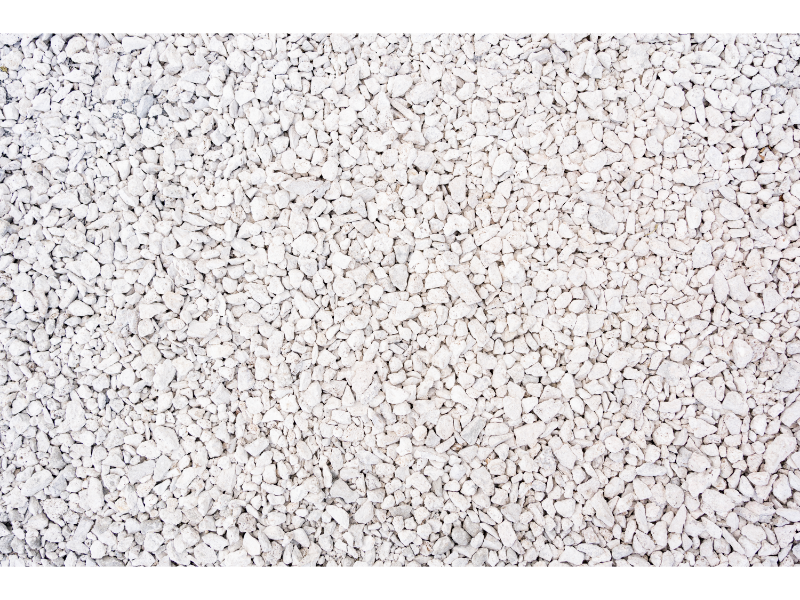In today’s rapidly industrializing world, the production and consumption of plastic-based materials are increasing every day. This rise affects not only industrial production volumes but also brings environmental impacts and sustainability requirements. At this point, materials that offer both economic and eco-friendly solutions stand out.
In this transformation process, Polyethylene Granule emerges as a critical raw material at the heart of modern production technologies and recycling systems.
Thanks to its high durability, easy moldability, and recyclability, Polyethylene Granule is widely used. It plays a key role in industries such as packaging, automotive, construction, white goods, and agriculture. It is also a fundamental component of eco-friendly solutions in waste management.
Granules obtained from recycled polyethylene-based waste are a concrete example of environmentally conscious production.
In this article, we will explore the concept of Polyethylene Granule in detail. What is it? Where is it used? How is it recycled? And why is it so essential for industry? We will provide comprehensive answers to these questions.
Table of Contents
- What is Polyethylene Granules?
- Why is Polyethylene Preferred?
- Recycled Polyethylene Granule Production Process
- Polyethylene (PE) Usage Areas
- Polyethylene Granule and Recycling Relationship
- Recycled Polyethylene Granule
- Polyethylene Granule Types
- Granular Polyethylene Properties
- Burkasan’s Role in Recycling
- Frequently Asked Questions (FAQ)
- Conclusion
What is Polyethylene Granules?
Polyethylene granules are small, round, and solid pellets made from the processing of polyethylene, a thermoplastic polymer. These granules are widely used in the plastic industry and serve as a primary raw material in the production of many different products.
Their granular form provides high efficiency in manufacturing processes. This is because the material can be melted evenly and easily molded into various shapes.
Polyethylene granules can be produced in different types such as Low-Density Polyethylene (LDPE), High-Density Polyethylene (HDPE), and Linear Low-Density Polyethylene (LLDPE). Each type offers different physical and mechanical properties to meet the needs of various industries.
For example, LDPE is used in packaging products that require flexibility. On the other hand, HDPE granules are preferred in the production of pipes and containers where strength and durability are essential.

Additionally, the granular form makes polyethylene easy to store and transport. Compared to powder form, it poses less risk and is more suitable for automation in production lines.
Polyethylene granules offer not only functional benefits but also economic advantages. In high-capacity production facilities, using these granules shortens production time and lowers energy costs.
In conclusion, polyethylene granule is a cornerstone of the plastic industry. It plays a critical role in sustainable manufacturing processes.
Thanks to its technical properties and cost-efficiency, it has become an essential raw material across many different sectors today.
Why is Polyethylene Preferred?
Polyethylene is a preferred material in many industries due to its physical and chemical properties. Its flexible structure, impact resistance, and high resistance to chemicals make it ideal for various uses. It is widely used in packaging, construction, automotive, and textiles. This versatility makes polyethylene essential in both industrial production and daily life.
Moreover, its recyclable nature offers a major advantage for environmental sustainability. After becoming waste, it can be reprocessed. Once processed, it is turned into granules and used in new products. This helps preserve natural resources and provides economic benefits for businesses.
The reasons why polyethylene is preferred can be summarized as follows:
- It is lightweight and flexible.
- It retains its shape even at low temperatures.
- It is easy to process during production.
- It is recyclable and environmentally friendly.
Thanks to all these features, polyethylene offers functional solutions. At the same time, it supports the concept of sustainable production.
Recycled Polyethylene Granule Production Process
The production of polyethylene granules is highly important for environmental sustainability and industrial efficiency. This process is a key part of the recycling chain and is carried out in three main stages:
- Collection:
The first stage involves collecting polyethylene (PE)-based products that have reached the end of their life cycle. These products may include household packaging waste, industrial scraps, and agricultural films. Other plastic materials containing PE are also included.
These materials are delivered to recycling centers. At this point, expert companies like Burkasan use special systems to register the materials and prepare them for the recovery process.

- Cleaning and Separation:
The collected materials go through a thorough pre-treatment process, which directly affects production quality. At this stage, non-PE materials are separated. Organic and inorganic contaminants are removed. Label and adhesive residues are cleaned.
Thanks to advanced washing systems and optical sorting technologies, only high-purity polyethylene is transferred to the next stage.
- Granulation:
The cleaned and sorted PE materials are melted through high heat processing. These are then turned into granules.
The granules are packaged and shipped to be reused as raw material in the production of new plastic products across various industries.
Polyethylene (PE) Usage Areas
Polyethylene granule is widely used in many industries due to its versatile properties. Its light weight, durability, flexibility, and resistance to chemicals make it a preferred material in various production areas.
In the packaging industry, it plays a major role. It is used in the production of items commonly seen in daily life, such as carrier bags, transparent films, stretch wraps, and containers. In the construction sector, it is used in water and heat insulation materials, pipe coatings, and various insulation applications.
In the agricultural sector, polyethylene is known for its flexibility and durability. It is used in greenhouse covers, mulch films, and irrigation systems. These products must resist sunlight, moisture, and physical wear. Polyethylene provides all of these.
In the automotive industry, it is used for both interior and exterior parts. Bumpers, dashboards, and protective covers often include polyethylene. Its impact resistance and weather durability make it ideal for vehicles. Polyethylene granules are also common in household products. They are used in refrigerator parts, detergent bottle caps, and storage containers. These items need to be strong, safe, and easy to clean.
Thanks to its wide range of uses, polyethylene is preferred in many fields. It is light, strong, and easy to shape. These features explain why it is so popular in both industry and daily life.
Polyethylene Granule and Recycling Relationship
Polyethylene granules are a type of plastic that can remain in nature for hundreds of years without breaking down. Because of this, it poses a serious threat to the environment when it becomes waste.
However, this issue can be turned into an advantage through recycling processes. Polyethylene products that have reached the end of their life can be processed using proper methods. They can be converted into granule form and reused in production.
Recycled polyethylene granules help reduce the use of natural resources. They also help control the amount of plastic waste.
At the same time, they offer an economical alternative for businesses. In this way, eco-friendly production and cost efficiency can be achieved together.

Burkasan manages this process in a professional and sustainable way. Through the production of recycled polyethylene granules, it contributes to an environmentally conscious production model.
At the same time, it takes concrete steps toward zero waste goals. In doing so, it adds value to both industry and the environment.
Recycled Polyethylene Granule
Recycled polyethylene granule is a sustainable raw material obtained by reprocessing used plastic waste without harming the environment. At Burkasan, these granules are produced using advanced recycling technologies, offering eco-friendly solutions while adding value to the industrial sector.
Recycled polyethylene granules are widely used in packaging, agricultural films, construction materials, and automotive parts. Due to their lightweight, durable, and cost-effective nature, they have become a key component of sustainable manufacturing.
With its zero-waste policy, Burkasan approaches polyethylene granule production not only as an economic activity but also as an environmental responsibility. This commitment helps reduce carbon emissions and supports the circular economy model.
Polyethylene Granule Types
Polyethylene granules are generally divided into three main types:
- HDPE (High-Density Polyethylene): Used in rigid and dense plastic products.
- LDPE (Low-Density Polyethylene): Used in more flexible, lightweight, and transparent products.
- LLDPE (Linear Low-Density Polyethylene): Used in films, bags, and stretch wraps.
Each type offers solutions tailored to the needs of different industries.
Granular Polyethylene Properties
Granular polyethylene is a widely used raw material in the plastics industry, presented in small pellet form. It is obtained by melting polyethylene and transforming it into granules. Thanks to its high performance and ease of processing, it is preferred across various sectors.
- High durability: It is resistant to impacts, chemicals, and humid environments.
- Flexibility: It can be produced in different densities (LDPE, HDPE), allowing for adjustments in flexibility and hardness.
- Recyclability: As an eco-friendly material, it is recyclable and can be reprocessed.
- Good processability: Suitable for various manufacturing techniques such as injection molding, extrusion, and film production.
- Cost-effective: It has low production and processing costs, making it an economical option.
Granular polyethylene is widely used in packaging materials, pipe manufacturing, automotive parts, and household appliances.
Burkasan’s Role in Recycling
Burkasan does not see polyethylene granule production only as an industrial activity. It also considers it an environmental responsibility. Since its establishment, Burkasan has placed sustainability at the center of its operations. This approach sets the company apart.
It operates modern facilities equipped with advanced recycling technologies. With its team of experts, it offers customized solutions to brands across Turkey.
The company is responsible for collecting PE-based plastics that have reached the end of their life cycle. It manages the entire process, from cleaning these materials to converting them into granule form. This ensures the production of high-quality recycled granules. At the same time, environmental impacts are minimized.
Burkasan’s approach goes beyond production. It also analyzes the waste management processes of its partners. This helps them become more efficient and effective.
Through customized recovery strategies, the company supports businesses in fulfilling their environmental responsibilities. It also helps reduce operational costs.
Frequently Asked Questions (FAQ)
What is polyethylene granulate?
It is a form of polyethylene that is melted into small particles and used in the production of plastic products.
Is recycled polyethylene granulate of good quality?
Yes. Recycled PE granules are of high quality when the correct grading and granulation techniques are used.
Is polyethylene harmful to the environment?
Yes, when released directly into nature. However, it becomes environmentally friendly when recycled.
What kind of solutions does Burkasan offer in recycling?
It develops customized solutions for businesses by offering waste management, granule production and consultancy services.
Conclusion
Polyethylene granules are not just a raw material in today’s industrial world. It has also become a symbol of environmentally friendly production. With its flexible, durable, and reprocessable nature, this material is essential in many industries. At the same time, it plays a key role in recycling processes. Recycled polyethylene granules significantly help reduce environmental impact. They also meet the economic resource needs of industrial production.
At this point, companies like Burkasan play a vital role. Burkasan goes beyond being just a recycling company. It stands out in the industry with eco-friendly production techniques and customer-focused waste management solutions. By managing the recovery processes with great care, Burkasan ensures the production of high-quality polyethylene granules. It also actively contributes to the protection of natural resources.
Burkasan’s visionary approach guides not only today’s but also future recycling policies. Its commitment to zero waste goals and its production mindset are key factors that set Burkasan apart in the industry. With its sustainability-focused business model, Burkasan serves as a leading example in the recycling sector. In conclusion, the production and recycling of polyethylene granules is more than just a manufacturing process. It is a comprehensive transformation movement that delivers environmentally friendly, cost-effective, and long-term solutions.
Burkasan is a strong representative of this movement. It continues to build an industry approach that aligns with nature, with strong dedication.
If you would like to explore more of our content on behalf of Burkasan, you can browse our other articles.

